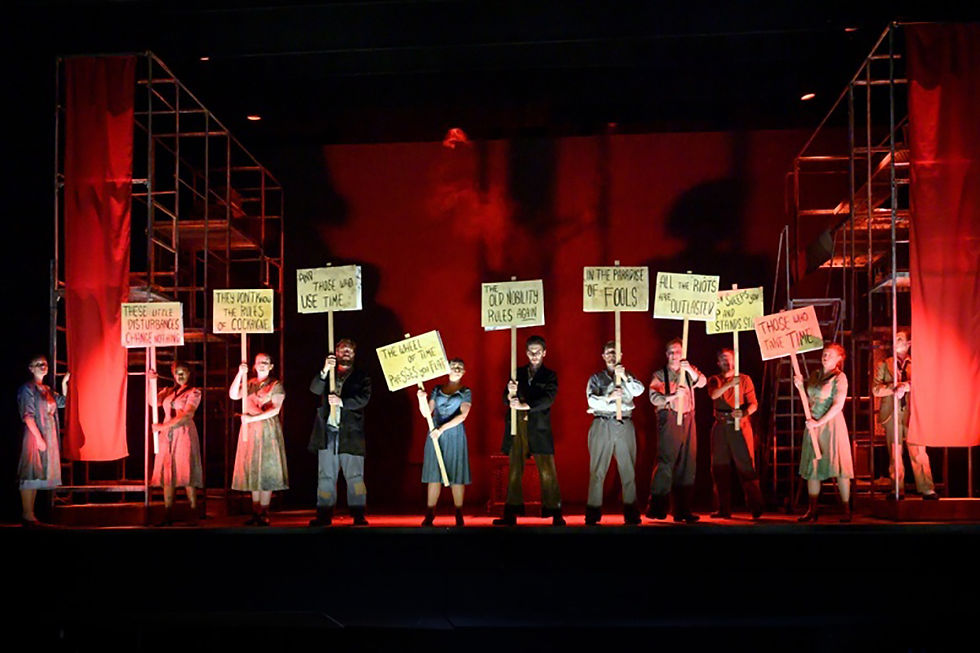The Silver Lake
- Robert Beale
- Oct 13, 2019
- 2 min read
Updated: Aug 3, 2021
Georg Kaiser and Kurt Weill
English Touring Opera
Opera House, Buxton, and touring to Durham, Lancaster and other venues
12 October 2019: 2hr 15min


Premiered in 1933, The Silver Lake was the last theatre work Kurt Weill completed before being forced out of Germany by the Nazis. His collaborator was Georg Kaiser, a gifted playwright who was very successful in the Weimar Republic era, and it’s altogether a more poetic and fanciful creation than most of his work with Berthold Brecht.
The fast-moving succession of scenes (with a narrator to make sure you don’t miss anything) nonetheless conveys a clear social message. It begins with the poor and hungry queuing for inadequate handouts because they can’t afford the food shops’ prices, and quickly points out that this is because capitalism dictates that prices must remain high, even if the food itself is getting thrown away to ensure demand outstrips supply.
A crowd bursts into a shop and loots it, but the character on whom we focus, Severin, takes just one rare thing: a pineapple. He’s shot in the leg by policeman Olim, who is racked by guilt but tells himself he can’t afford to help him – until he wins the lottery and becomes a rich man.
He takes Severin into the castle he has now acquired and seeks to make amends, but the two of them, once reconciled, are cheated out of their property by their housekeeper, a survivor of the old nobility (with help from her baronial friend). They are dispossessed and head for the land where justice reigns, across the Silver Lake which miraculously freezes over to grant them passage.
This was enough to ensure the Nazis got the show closed after two weeks, and Weill was soon on his way out of the country.
The piece is subtitled A Winter’s Tale, and in some ways is a fairy story. With spoken dialogue and narration, it’s in the singspiel tradition (the German equivalent of a musical), like The Magic Flute – and Weill’s rich and multi-coloured score, requiring an opera-quality chorus and using some of Mozart’s devices too (such as a chorale with a walking bass, for the final journey) is a many-splendoured thing.
English Touring Opera’s artistic boss, James Conway, is the director, and Kurt Weill expert James Holmes (well known to Opera North devotees) conducts. Such resources as ETO has to throw at a project are visible here, with quite an elaborate set by James Wiltshire, including screen projection, and the stage is peopled, in addition to its 14 credited singers, with members of Streetwise Opera’s groups involving homeless people.
The narration and spoken dialogue are in English, and Conway and Holmes have put the choral numbers into English, too. The solo ones remain in the original German… a bit odd, that seems; but with English surtitles for both on display, both electronically and in placards held up by the cast from time to time, we don’t miss a thing.
ETO has done a great job with this rarity and should be congratulated. There’s a quality line-up of principals, with Ronald Samm as Olim, David Webb as Severin, Clarissa Meek as the nasty housekeeper Frau von Luber and Luci Briginshaw as her poor relation Fennimore. Bernadatte Iglich takes credit as both choreographer (there’s dancing in it, too) and narrator.






